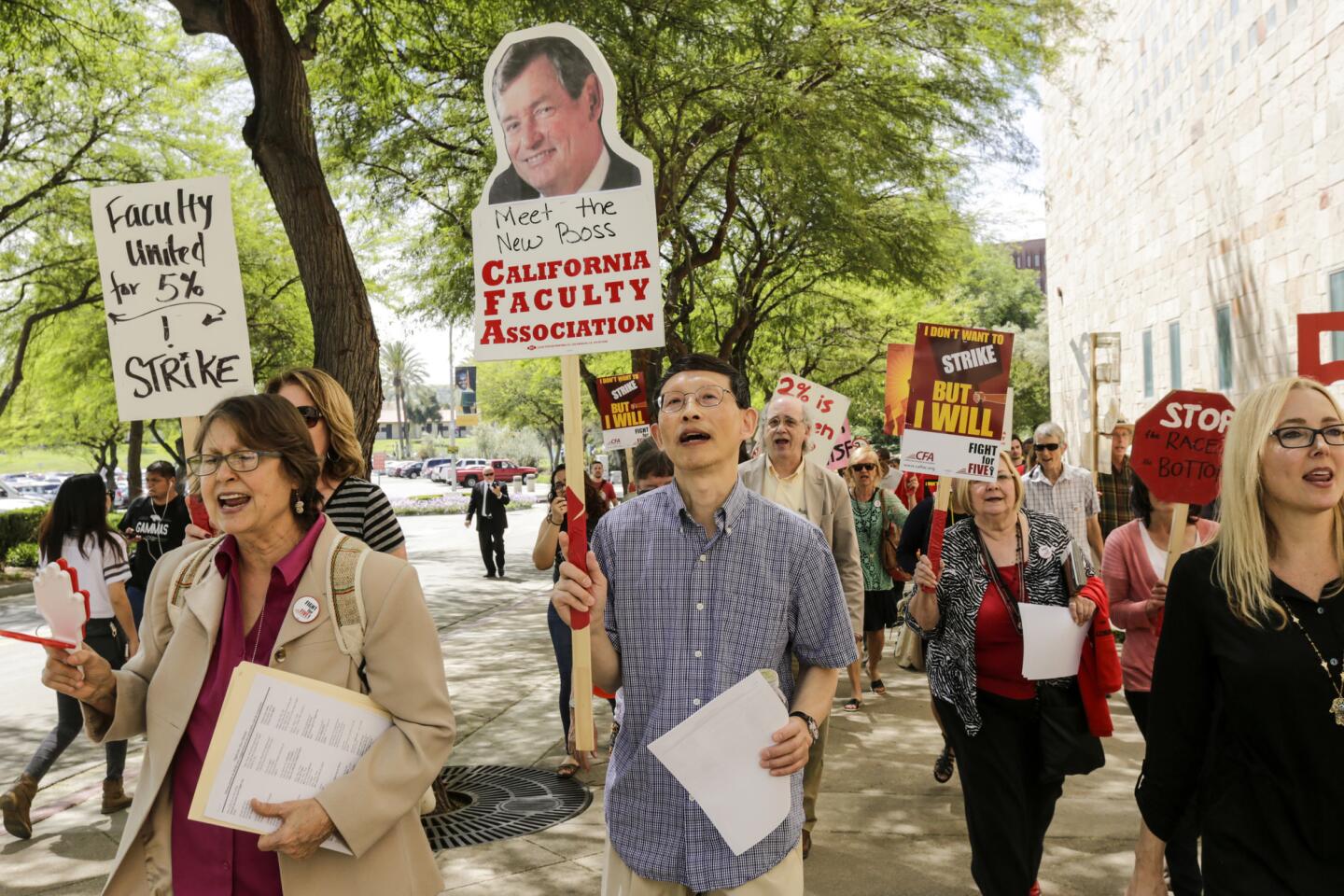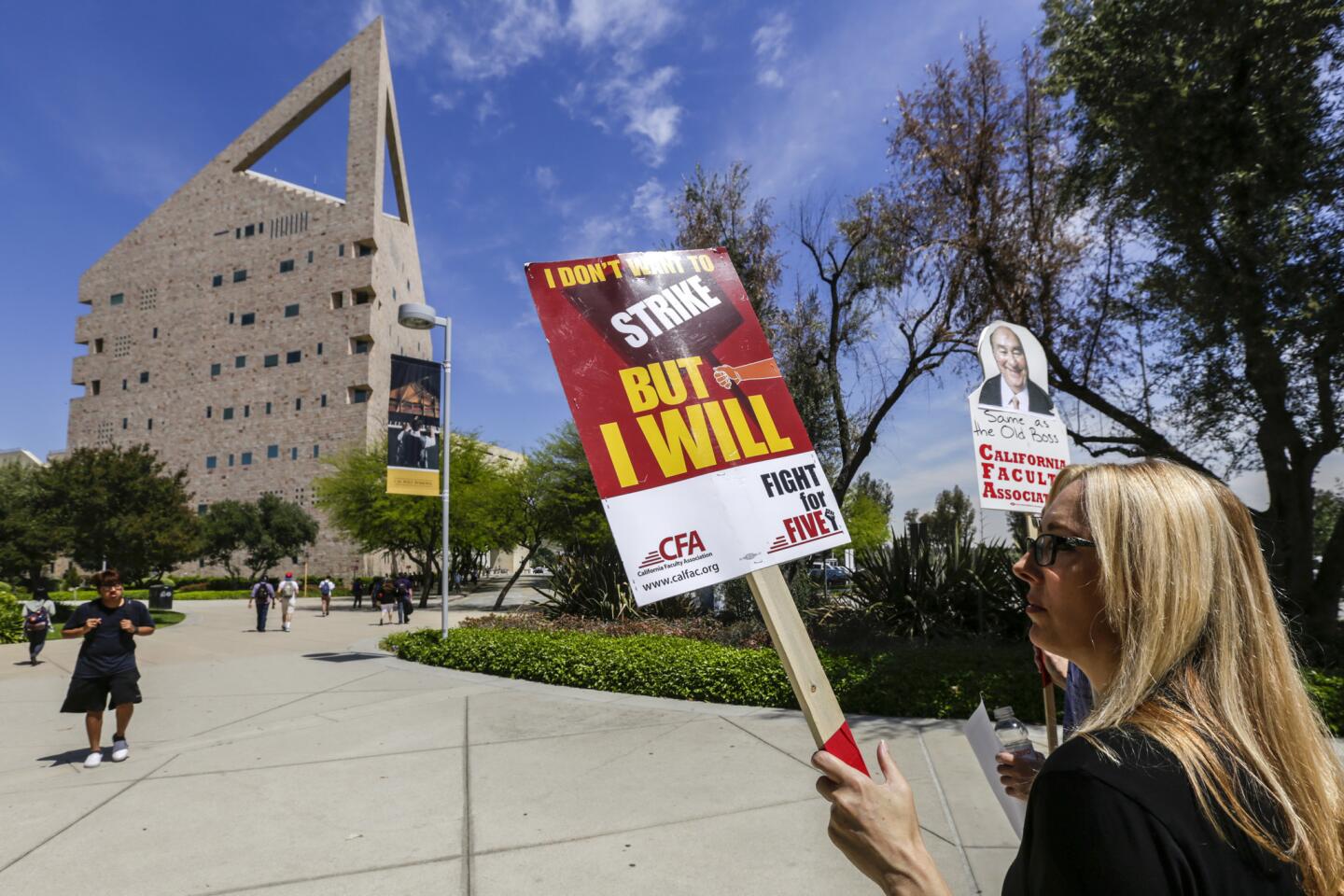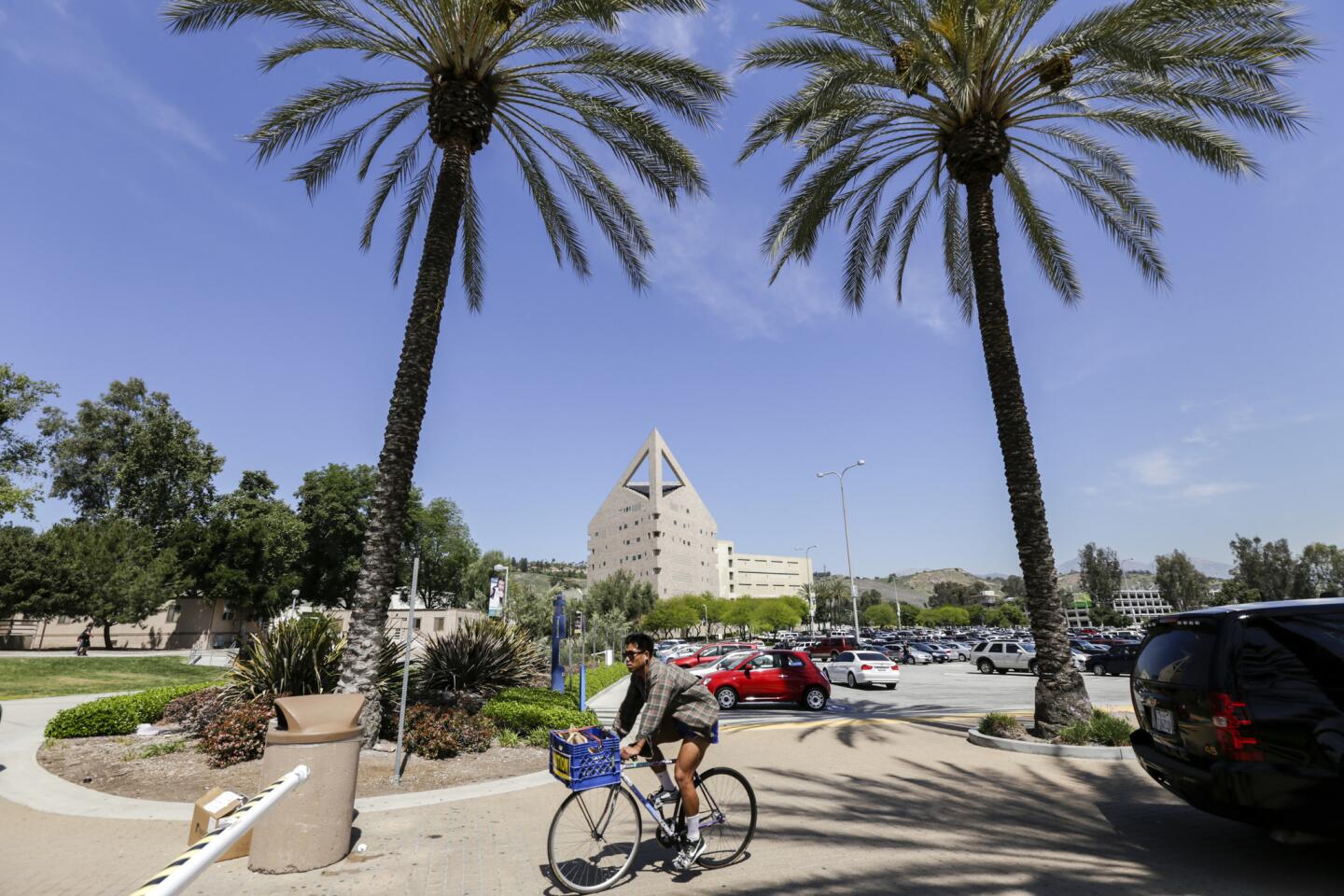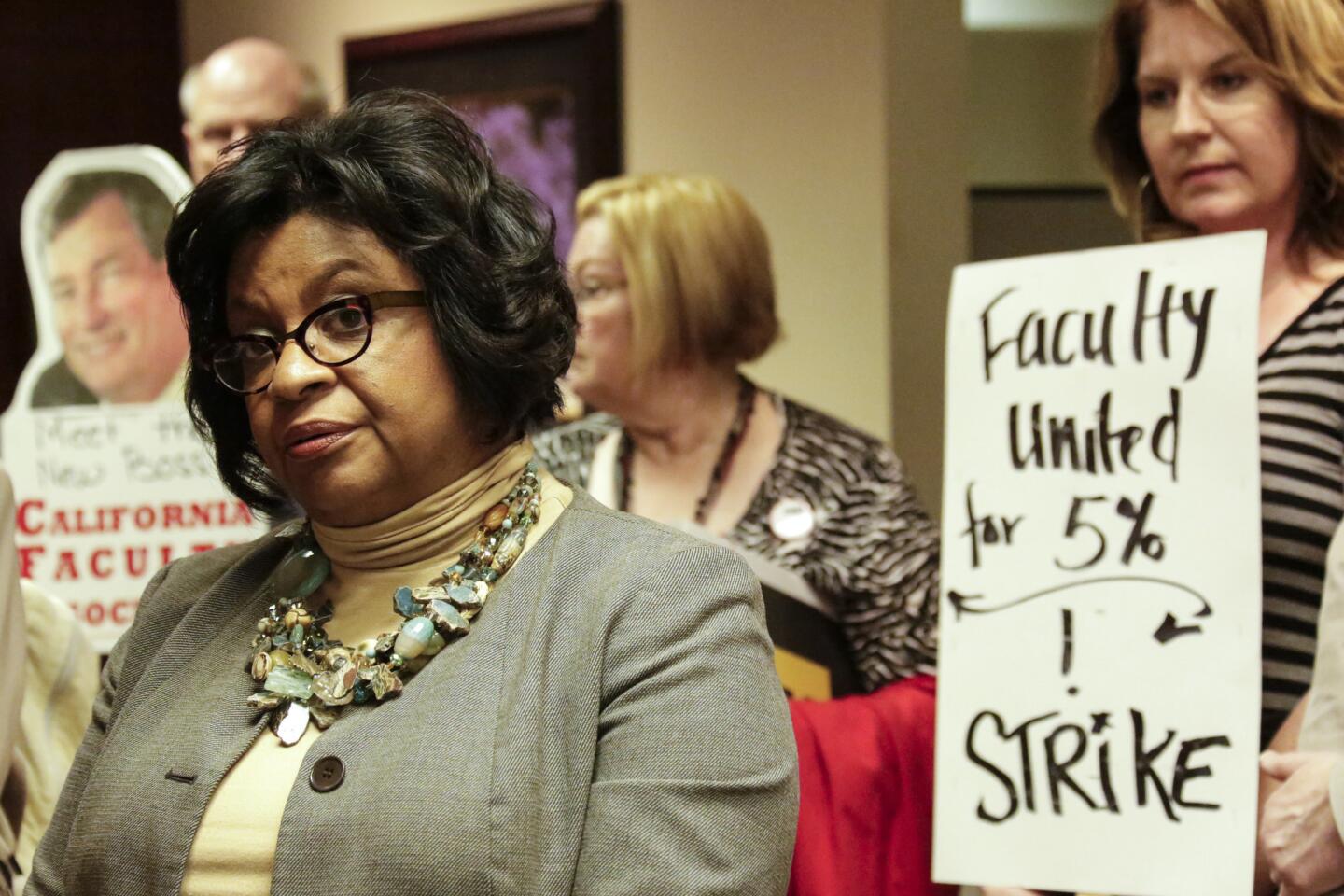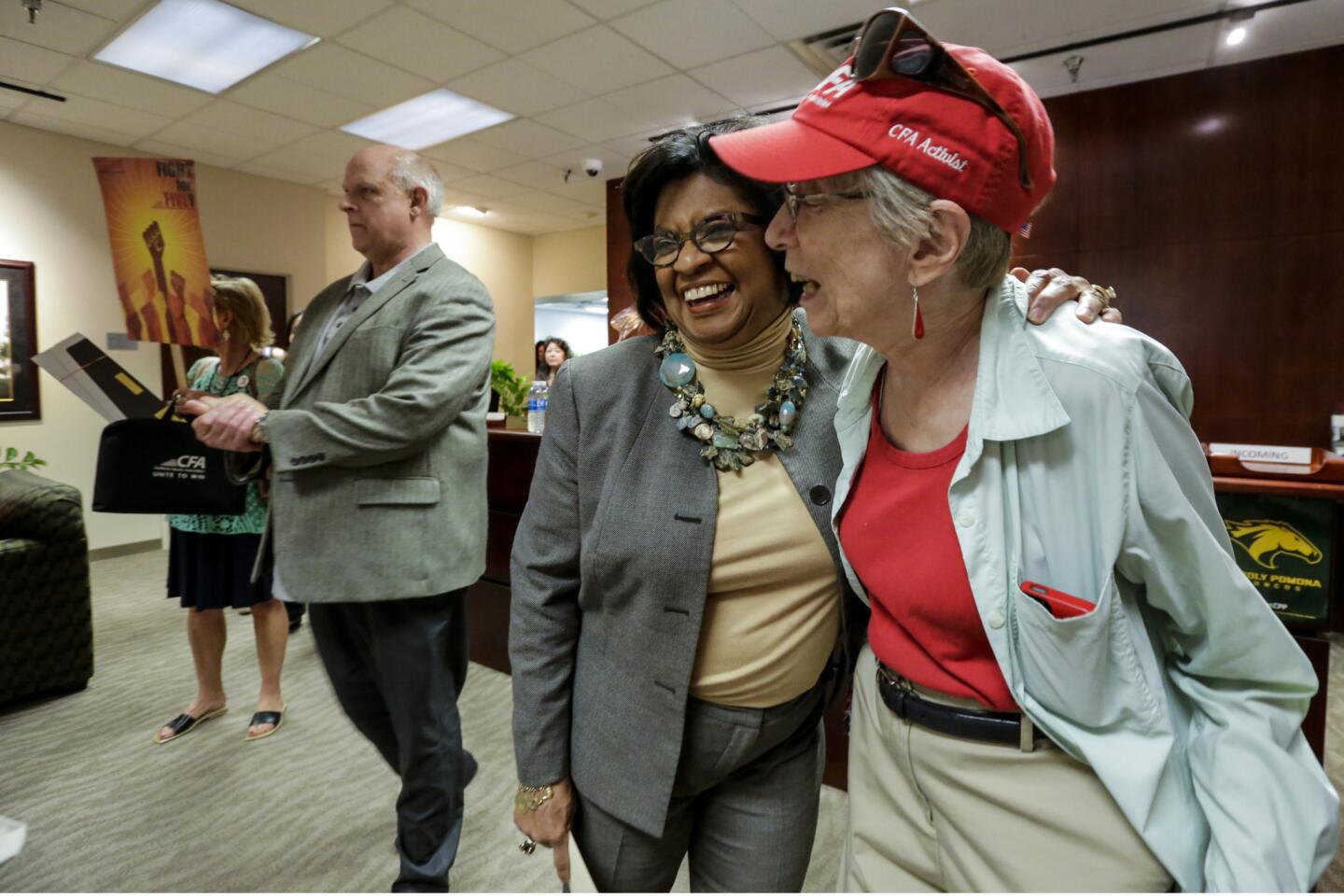Cal State trustees agree to boost faculty salaries, ending yearlong dispute
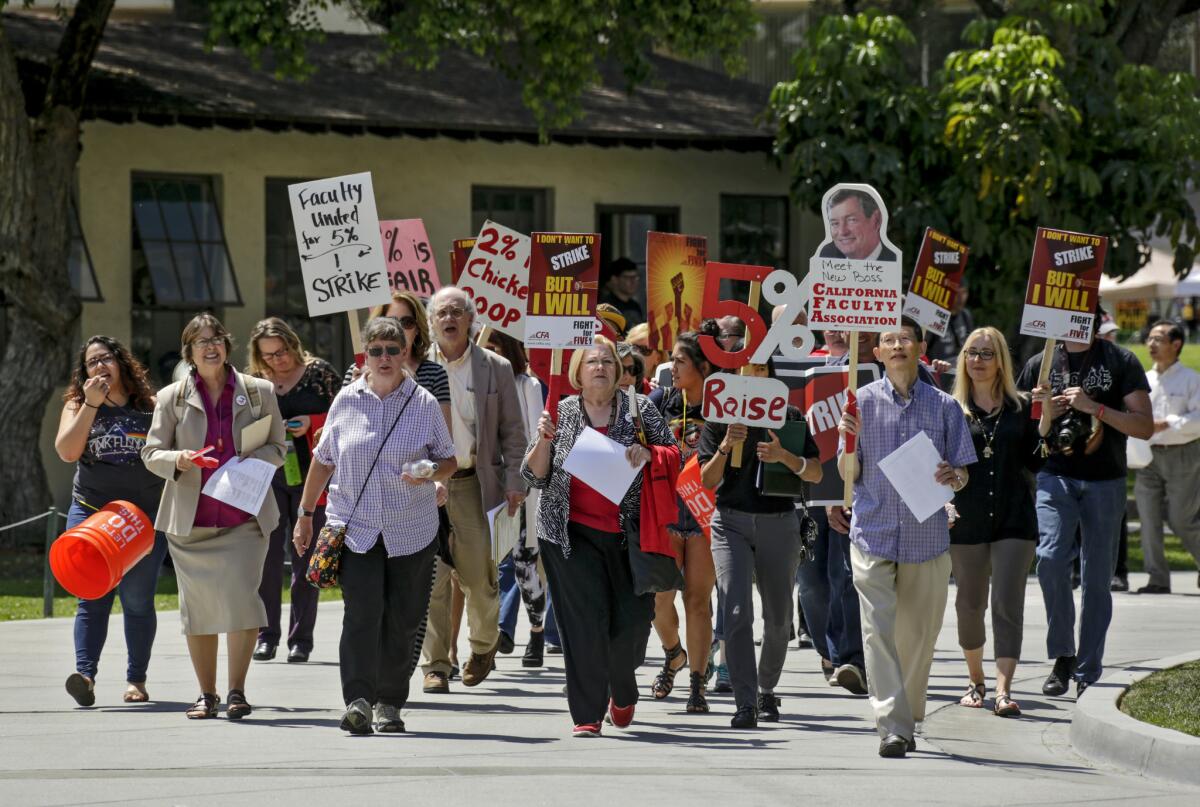
- Share via
The Cal State Board of Trustees approved a plan Tuesday to raise faculty salaries by 10.5% over three years, capping a long-running dispute over pay that threatened to wreak havoc on the nation’s largest public university system.
The board’s Committee on Collective Bargaining voted unanimously to implement an agreement that was negotiated by university administrators and the California Faculty Assn. last month. The last-minute deal averted a planned five-day strike that would have disrupted operations across all 23 Cal State campuses.
CSU Chancellor Timothy P. White, said he was grateful the trustees ratified the agreement. He emphasized the important role that Cal State’s more than 26,000 professors, lecturers, coaches, librarians and counselors play in enabling university priorities, such as student achievement and degree completion.
“Investing in our faculty is an investment in our students’ learning,” said White, who led the negotiations with the faculty union.
Union President Jennifer Eagan acknowledged that it had been “a difficult year” for faculty, administrators and students, but she said the outcome was worth it.
“We are pleased that we managed to avoid a strike and come to a reasonable agreement that takes fair and necessary steps toward resolving long-standing and much-aggrieved salary problems for the faculty,” said Eagan, a professor of philosophy and public administration at Cal State East Bay.
With salary issues resolved, union leaders and Cal State officials can now focus on other important faculty issues, she added, such as increasing the number of tenured professors.
The dispute began about a year ago, when the union demanded a 5% pay raise for professors and other faculty members. Cal State said it could only afford a 2% raise. White had said that anything more would jeopardize the system’s other important priorities, such as increasing enrollment and supporting vital student programs.
The compromise plan allows for a larger pay increase, but spreads out the cost over three fiscal years. It starts with a non-retroactive, 5% general raise that takes effect on June 30, the last day of the budget year. Then on July 1, a 2% raise will kick in, giving faculty what amounts to a 7% salary increase. A final bump on July 1, 2017, will bring the total increase to about 10.5%.
As part of the agreement, the union agreed to double the time it would take for professors to become vested for retiree health benefits.
Union members welcomed the deal three weeks ago with a 97% vote of approval.
“All faculty and all staff are valued and their work is important,” said trustee Adam Day, a member of the collective bargaining committee. “I’d like to thank everyone for their hard work and dedication for getting us to this point today.”
All told, the 10.5% increase will cost the Cal State system about $200 million. But since the salary increases will be paid out over time, funding for Cal State’s other priorities will not need to be cut, White said.
So far, administrators have identified about $68 million to cover the salary increases going into July and are hopeful they will secure additional funding from the state by the end of the next budget cycle.
At Tuesday’s meeting, both the board of trustees and the union called on state officials to increase Cal State funding. University advocates have been lobbying Gov. Jerry Brown to add $101.3 million to his proposed budget for Cal State’s overall operations, which includes faculty compensation. The system lost more than $1 billion in funding during the recession, White said, and its annual budget is still about $135 million below 2008 funding levels.
Brown’s May state budget revision included an extra $25 million to improve graduation rates. But that money was just a one-time boost, Eagan said.
“The CSU needs an increase in permanent and recurring funding,” she said. “We don’t have one-time students. Students recur. There are more of them every year .... We need to restore ongoing funding to the system to be able to serve them all.”
MORE LOCAL NEWS:
L.A. Mayor Eric Garcetti says Bernie Sanders supporters won’t turn to ‘racist’ Donald Trump
Brush fire near Lake View Terrace is 60% contained
Carjackers used gay dating app Grindr to lure victims, authorities say
Follow @RosannaXia for more education news
More to Read
Sign up for Essential California
The most important California stories and recommendations in your inbox every morning.
You may occasionally receive promotional content from the Los Angeles Times.
